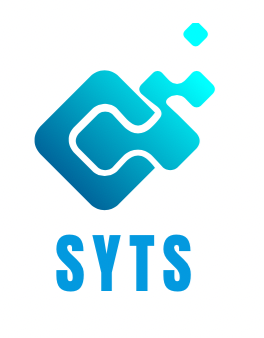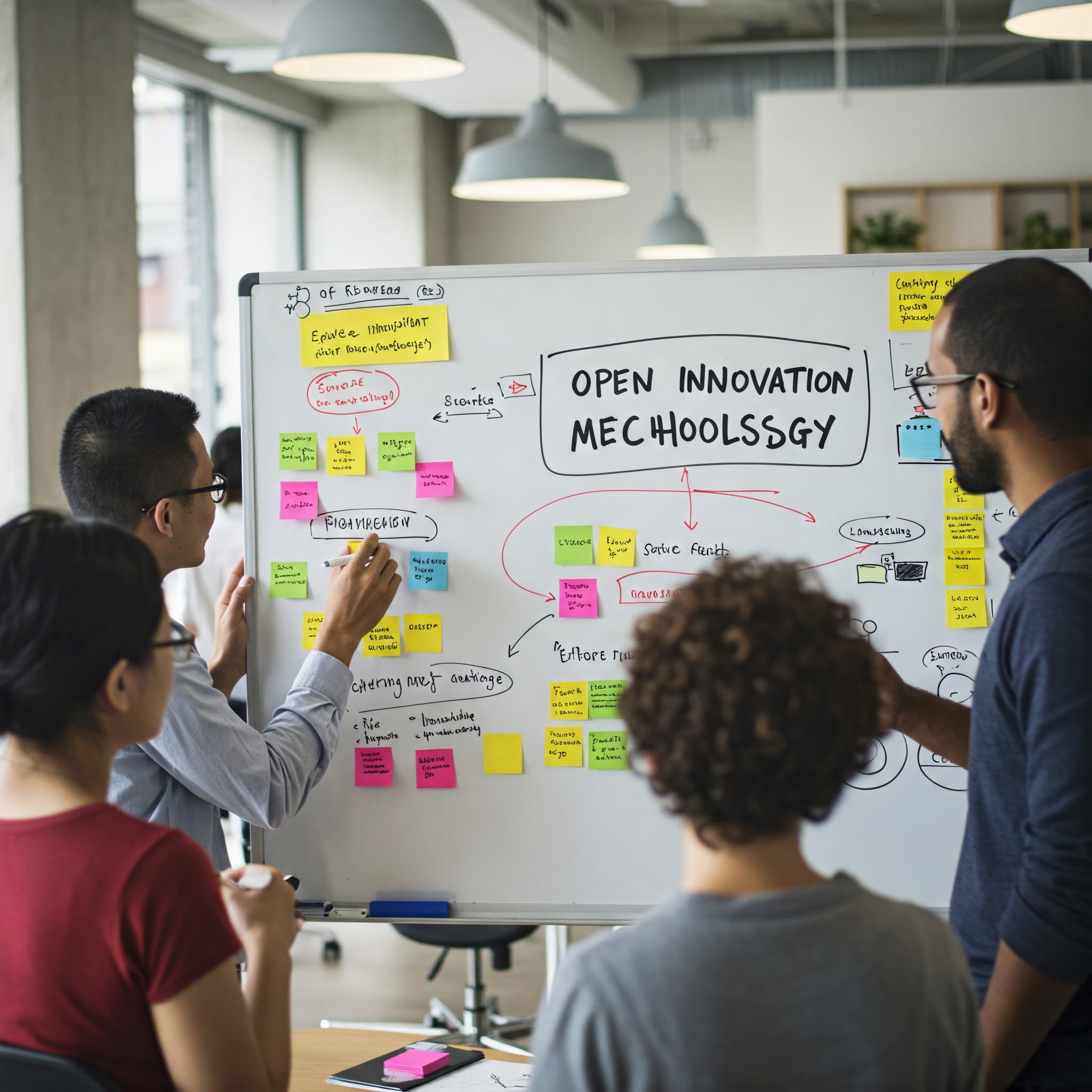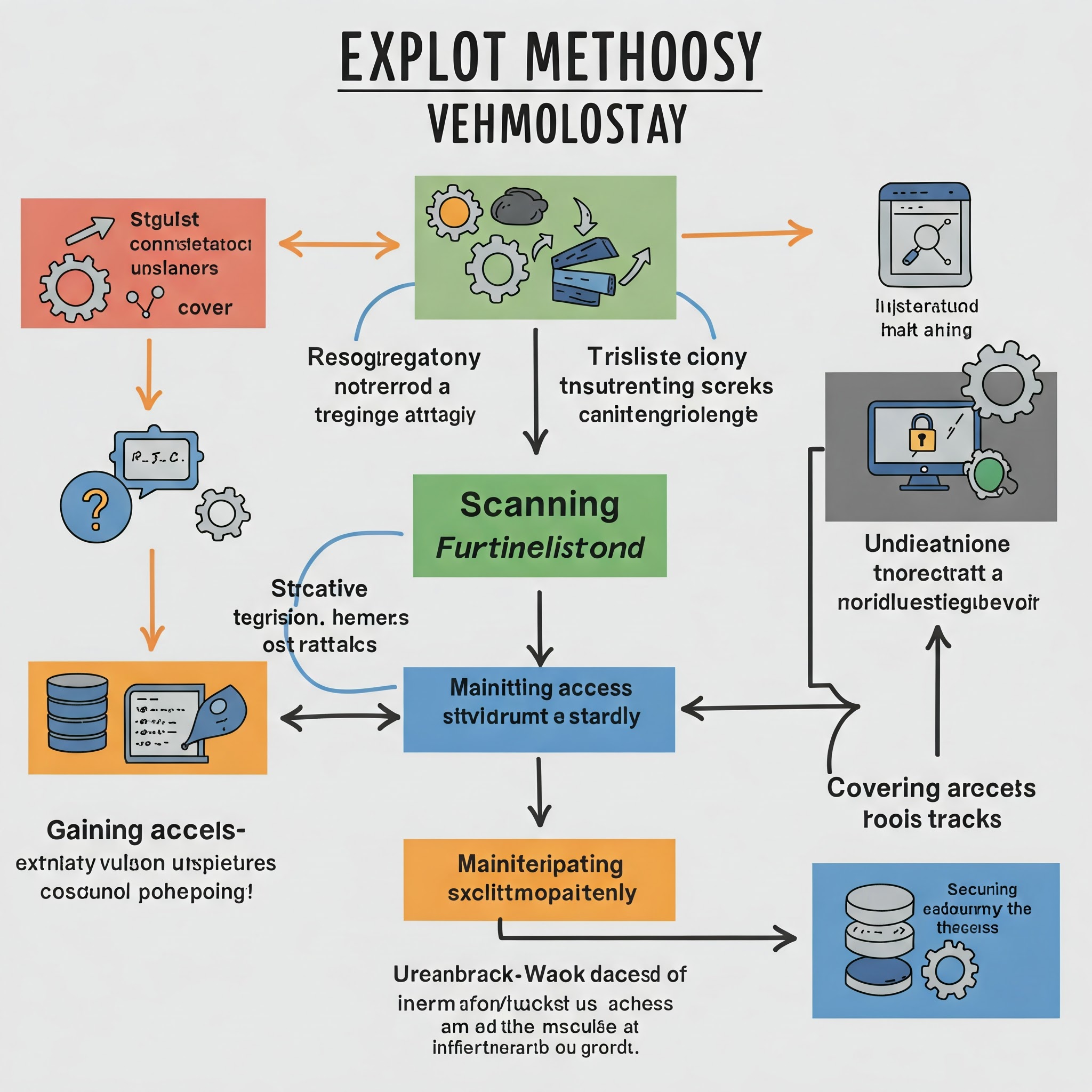
Open Innovation
Open innovation consulting helps companies integrate external and internal ideas to drive innovation, increase competitiveness, and improve efficiency. Below are some typical activities carried out in this type of consulting:
Diagnosis and Strategy
– Needs Mapping: Identifying challenges and opportunities for innovation within the company.
– Setting Objectives: Defining strategic goals for adopting open innovation.
– Strategic Planning: Developing a plan to integrate external partners into the innovation ecosystem.
Prospecting and Connecting with the Ecosystem
– Partner Identification: Researching relevant startups, universities, research institutes, and suppliers.
– Partnership Facilitation: Connecting and mediating negotiations between the company and external partners.
– Event Organization: Hosting hackathons, innovation challenges, and pitch days to attract external talents and ideas.
Innovation Project Management
– Coordination of Collaborative Projects: Overseeing initiatives involving internal and external teams.
– Agile Methodologies: Using frameworks like Scrum or Design Thinking to accelerate solution development.
– Monitoring and Evaluation: Analyzing the impact and performance of implemented initiatives.
Training and Organizational Culture
– Workshops and Training: Preparing internal teams for open innovation practices.
– Cultural Shift: Promoting a collaborative and innovative mindset within the company.
– Managing Resistance: Addressing cultural barriers to adopting open innovation practices.
Tools and Processes
– Creating Collaboration Platforms: Implementing tools to facilitate communication and idea exchange between internal and external teams.
– Intellectual Property
Management: Establishing clear policies for sharing and protecting intellectual property.
Market Analysis and Benchmarking
– Case Studies: Analyzing how other companies have successfully implemented open innovation.
– Market Trends: Identifying opportunities and emerging technologies applicable to the business.

Startup
Strategy and Planning
– Defining the business model (e.g., Canvas).
– Strategic planning and setting short, medium, and long-term goals.
– Market analysis and identifying opportunities.
– Strategies for competitive differentiation.
Idea Validation and MVP
– Market research to validate the product or service.
– Creation and refinement of the MVP (Minimum Viable Product).
– User testing and feedback collection.
Financial Planning
– Preparing financial projections and cash flow.
– Structuring investment rounds.
– Defining valuation and preparing for pitches.
– Cost optimization and pricing strategies.
Fundraising
– Connecting with investors, venture capital funds, and accelerators.
– Developing presentations and pitch decks.
– Advising on negotiations and contracts.
Technology and Innovation
– Defining technical requirements for product development.
– Supporting the hiring of IT teams and technology partners.
– Implementing innovative solutions, such as artificial intelligence or blockchain.
Governance and Legal
– Structuring the company and formalizing its operations.
– Drafting and reviewing contracts.
– Ensuring compliance with regulations.
Marketing and Customer Acquisition
– Developing digital marketing and branding strategies.
– Planning campaigns for customer acquisition.
– Optimizing channels such as social media, SEO, and paid advertising.
Scalability and Growth
– Analyzing key metrics (KPIs) for sustainable growth.
– Planning for national or international expansion.
– Developing strategic partnerships.
Mentoring and Training
– Training founders and teams.
– Supporting leadership and management skill development.


